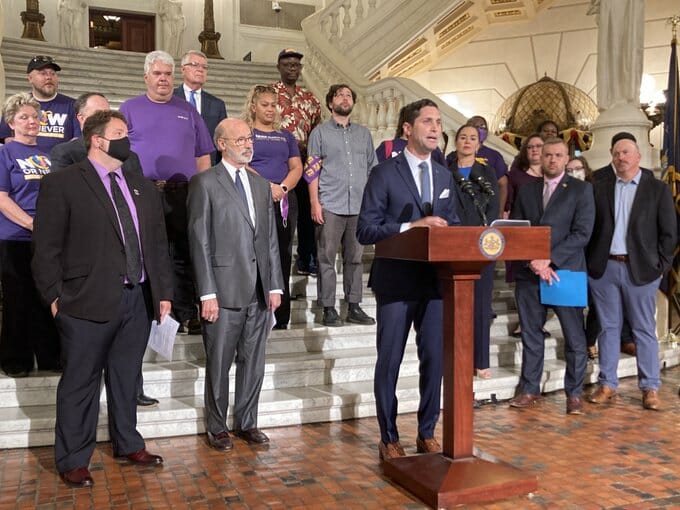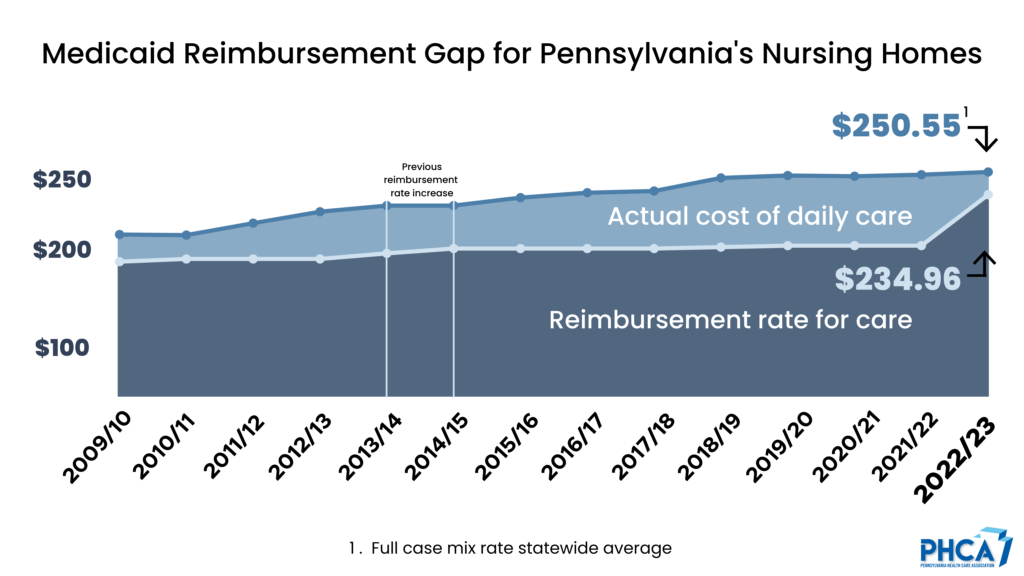
Pennsylvania Gov. Tom Wolf (D) and the state general assembly have approved what long-term care advocates have dubbed a “historic budget victory.” The 2022-2023 spending plan includes a Medicaid raise of $35 per resident per day for nursing homes.
Nursing homes have gone nearly 10 years without a budget increase. Leaders with the Pennsylvania Health Care Association, LeadingAge PA and SEIU Healthcare PA (pictured above) participated in a joint press conference Monday, along with Wolf, Speaker of the House Bryan Cutler and other state legislators to announce the budgetary milestone.
“This investment — a direct result of the entire long-term care sector, as well as state leaders, working together — helps better position Pennsylvania to ensure continuity of care for tens of thousands of vulnerable senior citizens. For months, we have asked, ‘Who Will Care?’ Today, seniors and adults with disabilities should find comfort in knowing that Pennsylvania cares,” stated PHCA President and CEO Zach Shamberg.
The budget increase approved Monday narrows what had been a widening gap between reimbursement and the cost of care in Pennsylvania.

The new budget line items most directly affecting long-term care include:
- a 17.5% Medicaid rate increase for nursing homes, which translates to an approximate $35 more per resident per day (including federal matching dollars);
- $131 million in American Rescue Plan stimulus funds for nursing homes;
- $26.7 million in American Rescue Plan stimulus funds for assisted living communities and personal care homes;
- $33 million in Medicaid Day One Incentive payments for nursing homes serving high Medicaid populations (including a federal match);
- $4.2 million in American Rescue Plan stimulus funds for nursing homes serving a high number of residents on ventilators;
- and a $20 million increase to Supplemental Security Income rates for personal care home residents
The total additional funding allocated for long-term care for the 2022-2023 budget cycle –– including federal matches –– is about $515 million, according to PHCA. The increased Medicaid reimbursement rates will take effect in January 2023, and the ARPA funds should begin to be allocated within the next two to three months.



